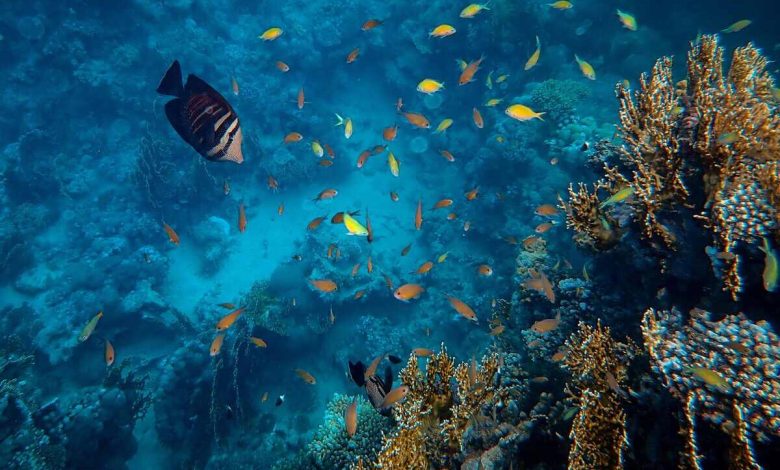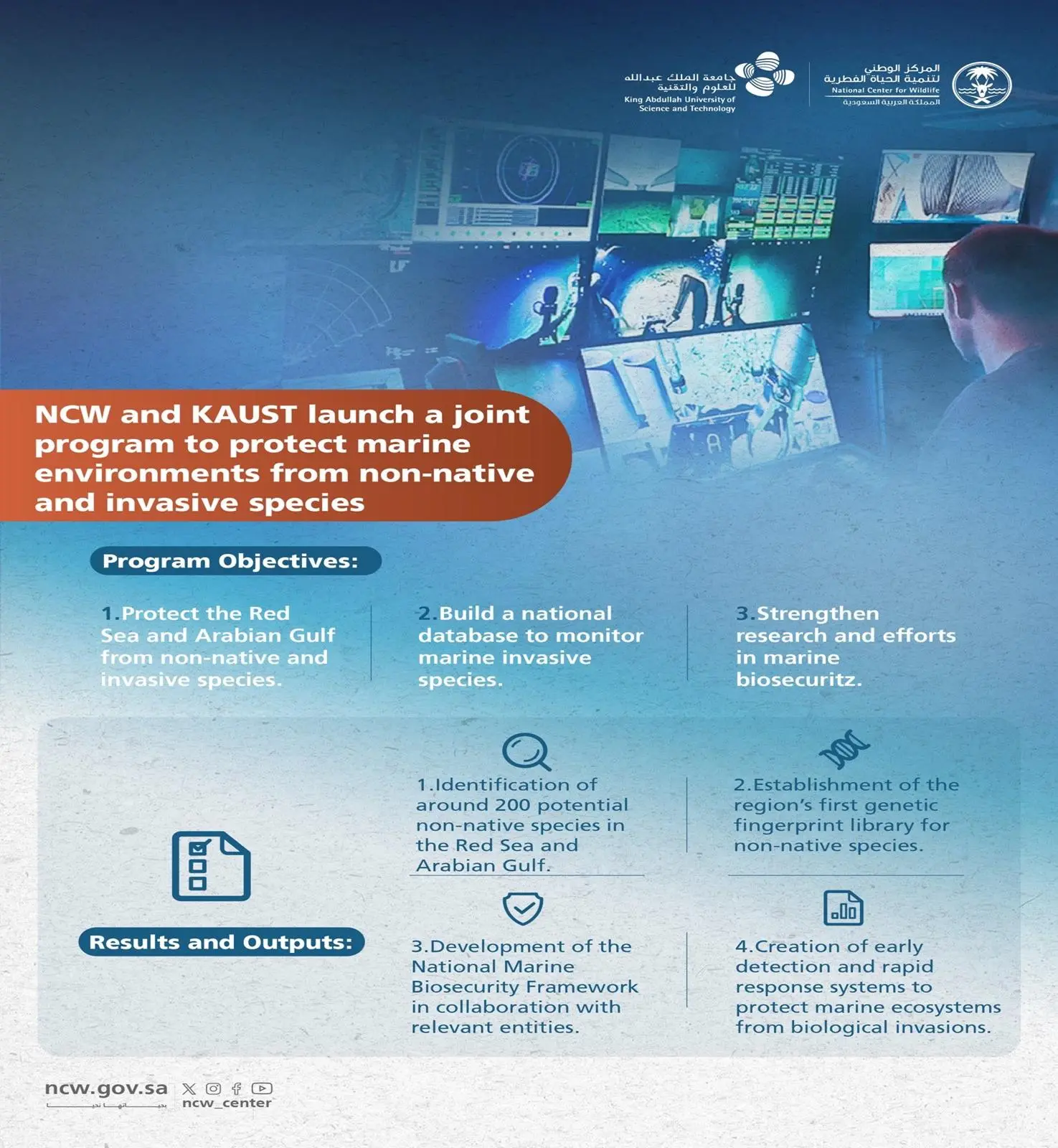Saudi Arabia Launches Robust Program to Protect Red Sea, Arabian Gulf from Non-Native, Invasive Species

Saudi Arabia’s National Center for Wildlife (NCW) has launched an advanced national program to protect the Red Sea and Arabian Gulf from non-native and invasive species, according to the Saudi Press Agency.
Inspiring Goals
In collaboration with King Abdullah University of Science and Technology (KAUST), the new program seeks to boost the Kingdom’s approach to preserve marine biodiversity and safeguard ecosystems.
This program marks the Kingdom’s first coordinated national initiative seeking to establish a comprehensive database on non-native and invasive marine species.
Therefore, it lays the foundation for future research and conservation efforts along the Kingdom’s coastal ecosystems.
Through the use of state-of-the-art research techniques, such as field surveys, DNA barcoding, and maritime traffic analysis, the initiative aspires to build a robust scientific basis for understanding species distribution and tracing dispersal pathways.
Preliminary Results
Initial findings have identified hundreds of potential non-native marine species across Saudi waters — with 181 recorded in the Red Sea and 168 in the Arabian Gulf.
Interestingly, these species are concentrated near ports and coastal infrastructure, highlighting the urgency for monitoring and future environmental planning.
Intensified Efforts
To accelerate these efforts, the program has also established the region’s first genetic fingerprint library for potential non-native marine species. This library serves as a groundbreaking tool that helps experts rapidly identify and response to any emerging ecological threats.
The program has also empowered national capacities through specialized training initiatives and bolstered marine biosecurity measures in line with international standards.
Currently, the National Center for Wildlife is developing a national marine biosecurity framework, in collaboration with relevant authorities, to prevent and manage the spread of invasive species based on the preliminary results.
This framework will feature early detection systems powered by molecular sensors, predictive modeling tools, awareness initiatives, as well as rapid response protocols.
Saudi Vision 2030
NCW CEO Dr. Mohammed Qurban noted that the initiative mirrors the Kingdom’s steadfast commitment to elevating scientific research and applying its outcomes to the protection of marine environments. Qurban also affirmed that such an approach aligns with the ambitious goals of Saudi Vision 2030 and the Saudi Green Initiative.
Related Topics:
NCW Showcases Baboon Population Management at 30th IPS Congress
Saudi Arabia Launches Scientific Initiative to Safeguard Marine Ecosystems
Saudi Red Sea Authority Promotes Coastal Tourism with Fincantieri






